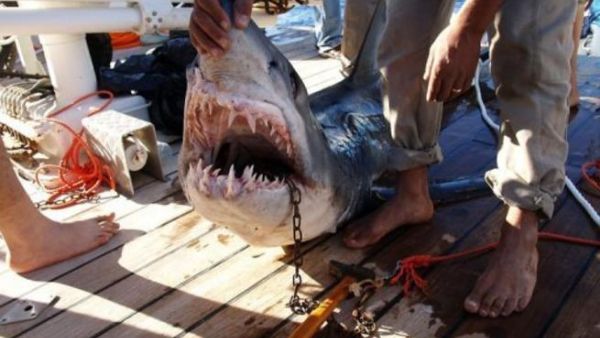The trade in sharks has long been big business in the United Arab Emirates, a country that exports to those that love a bit of fin in their soup.
But changes are afoot, with organizations like Sharkquest Arabia trying to educate people on the need to conserve the wildlife of the oceans and stop the finning of sharks for food.
Jonathan Al Khan is project leader at Sharkquest Arabia and a long-time campaigner for the rights of the sharp-toothed fish. Speaking to Emirates 24/7, he said nearly 8 per cent of the shark fins in Hong Kong broths are imported from the UAE: a number that’s much too high, in his book.
Part of the problem with the trade is that sharks produce very few offspring, only a couple of babies every 22 years, making them tricky to keep off the ‘endangered’ list.
The much-feared sea creatures are also top of the food chain, meaning any change in their numbers would seriously impact on life further down the ladder. As Dr. Ralf Sonntag, Director of IFAW Germany explains, "Smaller predators are massively affected by that."
However, the UAE is a trendsetter when it comes to shark conservation, with laws already in place to protect sharks. Other market competitors, such as the European Union, are only just starting to consider legislation.
Whilst the UAE and EUs policies are a step in the right direction, problems persist, as sharks are not creatures inclined to stay in one place. One single legislative body can do little on their own to protect the animals, explains Dr. Sonntag.
The next step is to protect shark species at the Convention on International Trade in Endangered Species of Wild Fauna and Flora (CITES), taking place in March 2013. If the motion passes, it will recommended that trade in certain species be regulated, which will hopefully stem the flow of fins to Asia.
Share your thoughts on shark trade and monitoring and moderating the practice in the UAE. Are you a fan of shark dinners - are you partial to a bit of shark fin soup?








